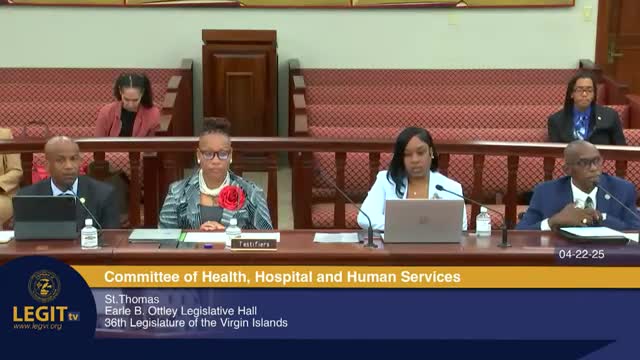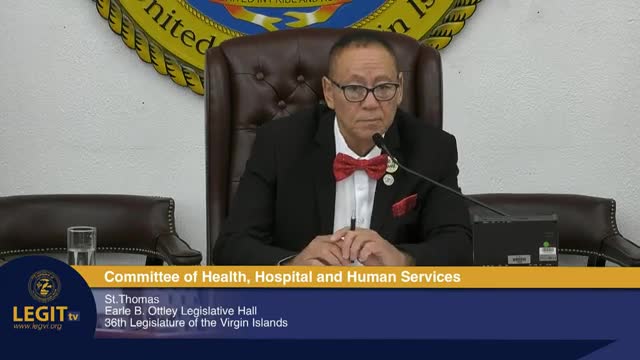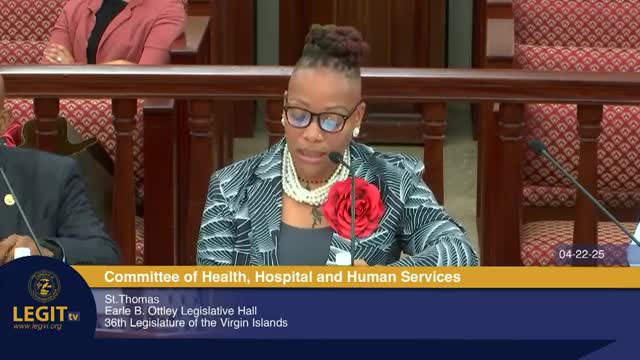Article not found
This article is no longer available. But don't worry—we've gathered other articles that discuss the same topic.

Committee backs bill requiring opioid risk discussions with patients; Health and AG offer amendments

VI Department of Health briefs senators on hand‑foot‑and‑mouth outbreak, measles risk and vaccination push

